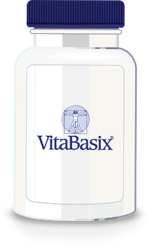With increasing age, there is more and more protein deposition in the brain, which impairs nerve conduction speed. Some foods contain nutrients that can positively influence brain function. Spermidine is one of them. This substance has become a kind of superstar in recent years. It belongs to a group of secondary plant substances called “sirtuin activators”. The name spermidine is based on the fact that the substance was first detected in male seminal fluid. However, there are other sources of spermidine. Certain foods such as wheat germ, dried soybeans, ripened cheese, kidney beans and many mushrooms are particularly rich in this natural substance.
One of the most important tasks of spermidine is a process also known as autophagy. While at a young age this process still works very well, with advanced age this system no longer works as effectively. More and more molecular rubbish accumulates in the cells. It is assumed that our body produces about one third of the spermidine it needs every day itself. Among other things, our intestinal bacteria produce a large part of this important nutrient. However, in order to boost the body’s own recycling process even more, it is recommended to increasingly resort to foods that are rich in spermidine in order to ensure the daily need for spermidine, while also supporting brain functions.
These foods include:
Wheat germ: The extract of these cereal germs is rich in protein, fatty acids and vitamins. In addition, wheat germ has a very high content of spermidine. It has been shown that a diet rich in wheat germ can raise the body’s spermidine level after only three months and thus help to significantly improve memory performance.
Astaxanthin: Is mainly found in shellfish, especially shrimps, crabs and lobsters as well as salmon and algae. This carotenoid can protect cells and support energy transmission.
Blueberries: These fruits have a very high content of polyphenols, which include especially the highly effective anthocyanins. These are known for their antioxidant and anti-inflammatory effects.
Green tea: Is rich in valuable ingredients such as catechins. These can help to protect the brain cells and thus increase cognitive performance. This is mainly due to epigallocatechin gallate (EGCG), a flavonoid, which is said to have the ability to prevent the formation of plaques in the brain, a process that could protect against neurodegeneration.
Turmeric: The active ingredient of the Asian spice turmeric (Curcuma longa), a relative of ginger, is curcumin. The secondary plant substance from turmeric gives Indian curry dishes their characteristic yellow colour. In addition, curcumin can protect the mitochondria of brain cells against oxidative stress. Furthermore, regular consumption of turmeric has been shown to improve memory and slow down the degradation of neurons in the brain.
Piperine is found in black pepper and can increase the bioavailability of various micronutrients.



 Chronobrands
Chronobrands



Reviews
There are no reviews yet.